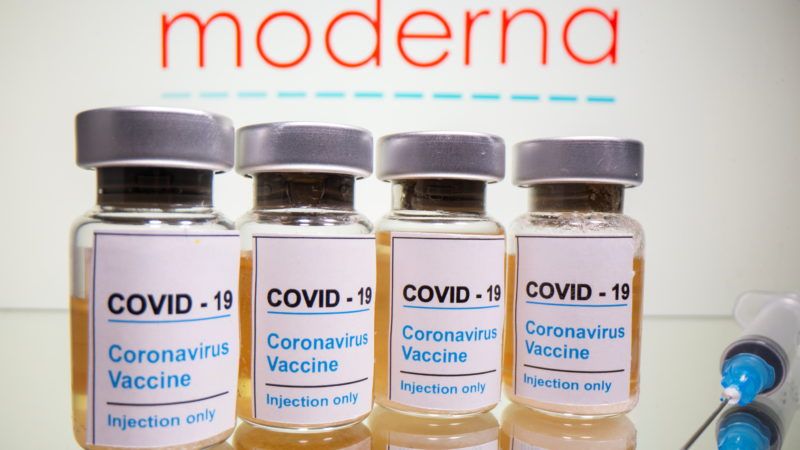Moderna's Preliminary Results Indicate That Its COVID-19 Vaccine Is 94.5% Effective
Hang in there, folks. Help looks to be on the way.

Moderna released the preliminary results from its ongoing clinical trial of its messenger RNA (mRNA) vaccine today, reporting that it is 94.5 percent effective at preventing COVID-19 infection. That would mean its vaccine is just about as effective at preventing COVID-19 as the measles, mumps, and rubella vaccine combination is at preventing those infections.
If the additional safety and efficacy data being collected through the end of this month from the clinical trial confirm these preliminary results, Moderna plans to seek an Emergency Use Authorization (EUA) from the Food and Drug Administration (FDA). If approved, the company expects to have approximately 20 million doses of its vaccine ready to ship in the U.S. and could manufacture 500 million to 1 billion doses globally in 2021.
Moderna's vaccine announcement follows last week's good news that the COVID-19 vaccine developed by Pfizer and BioNTech is at least 90 percent effective.
One big advantage of Moderna's vaccine is that it can be stored at –20°C and can remain stable for 30 days at 2° to 8°C—home refrigerator temperatures. In comparison, the Pfizer/BioNTech vaccine must be stored and transported at -70°C, which makes distribution more difficult.
Assuming positive results hold, the approval of these pioneer mRNA vaccines could truly transform how quickly and effectively new vaccines are developed. There may be other advancements on the horizon as well. Back in September, the Journal of the American Medical Association reported preclinical work in which researchers combined mRNA for 20 antigens for different diseases in the same vaccine. All 20 elicited good responses in mice. As JAMA pointed out, this means that "it might one day be possible for children to get 2 shots that cover their more than 50 vaccinations."
Both Pfizer/BioNTech and Moderna plan to produce hundreds of millions of doses of their vaccine in the coming months. Hang in there just a bit longer, folks. It looks like help is on the way.


Show Comments (74)